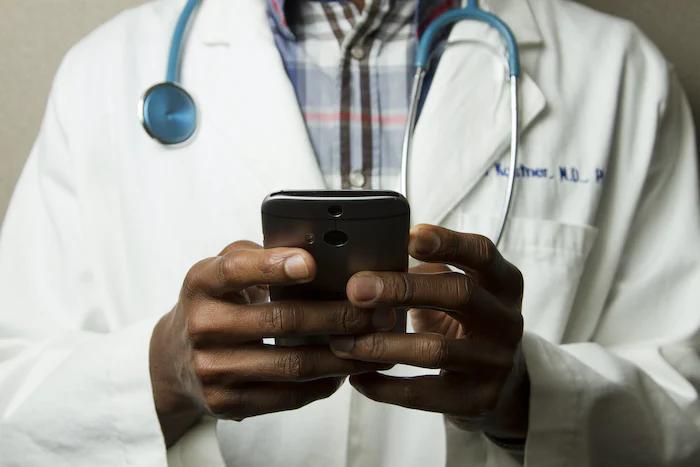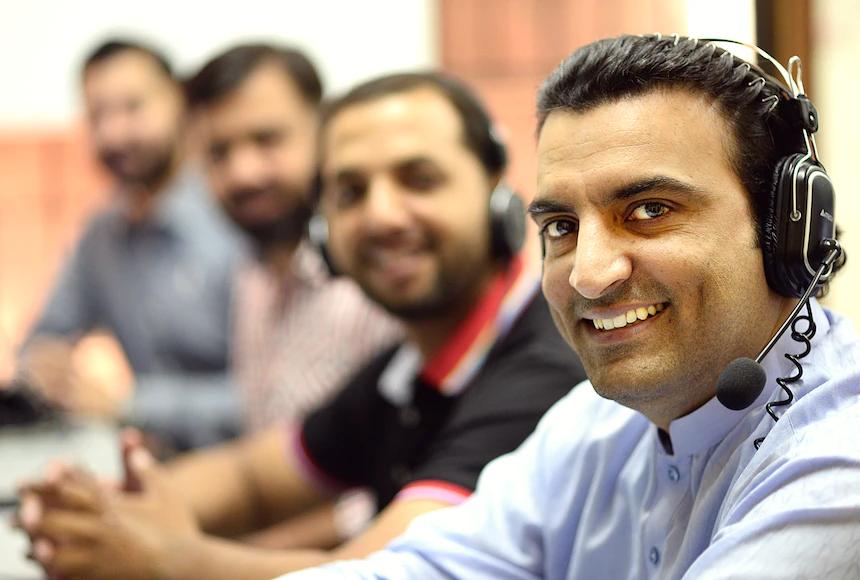As a medical professional, you may have a lot of responsibilities. Physicians are responsible for providing patients with timely and appropriate medical care. On the other hand, medical office managers are responsible for managing the daily operations of a clinic, including appointment scheduling, financial management, and ensuring that the clinic runs smoothly.
Medical professionals must stay current on new technologies and tools that can help streamline their work and improve efficiency in the medical field. This not only helps to enhance the operation of the workplace but also helps to maintain a high level of care for patients. Doctor answering services can be incredibly useful for simplifying communication and optimizing the patient experience. Suppose you are unfamiliar with these services and their capabilities. First, we need to know what is doctors answering service?
What is a Doctor Answering Service?
A doctor answering service, also known as a medical or telephone answering service (TAS), is a service that helps physicians and medical clinics manage their telecommunications by accepting calls and messages from patients and other callers outside of regular office hours. These services substitute office staff when they cannot answer calls.
How Does a Doctor Answering Service Work?
Telephone answering services are used in a variety of industries, including healthcare, technology, property management, and law, to name a few. Essentially, any organization that receives calls or conducts business over the phone can benefit from an answering service.
In the medical field, doctor answering services manage inbound calls. When a doctor’s office utilizes an answering service, calls made to the office are forwarded to a call center, which may be answered by a live operator or directed through automated systems and prerecorded messages.
Answering services often use automated and live operator solutions to deliver routine information, screen and direct calls, take messages, and connect callers with on-call physicians in emergencies. This helps ensure that calls are handled efficiently and effectively, improving the overall experience for patients and medical staff. Answering services offer different pricing models, some are a flat fee answering service while others may charge per minute of the call.
In addition to handling calls, many doctor answering services offer additional features such as appointment scheduling, billing and payment processing, and patient data management. These features can help streamline various aspects of medical practice and make it easier for staff to focus on providing patient care.
Doctor answering services provide a valuable service to the medical industry by managing calls and helping to improve the patient experience. Doctors and medical staff can use an answering service to ensure that their calls are answered promptly and efficiently while freeing up time to focus on other important tasks.
Doctor answering services often use live operators to allow patients to speak with a real person to address their needs. The call center will assess the caller’s situation and determine the appropriate course of action based on the level of urgency. If a medical emergency requires immediate attention from a physician, the call center representative will dispatch the call to the on-call provider. If the issue is not an emergency, the representative may direct the patient to other resources for treatment or take a message to be passed along during regular office hours. They also have TTY or IP Relay service for hearing-impaired patients.
What Do Doctor Answering Services Provide?
A good physician answering service can provide several valuable functions that can streamline your daily tasks and improve patient care. Some of the key functions that a physician answering service might offer include:
After-Hours Emergency Service: A doctor answering service can serve as the main point of contact for your practice outside of regular office hours, handling calls and using intelligent scripting and decision trees to determine which calls require immediate attention from the on-call physician and which do not.
Patient Appointment Scheduling: With a doctor answering service, you can allow your patients to book and manage their appointments anytime and anywhere through a web-based calendar system. This automated system is an intermediary between patients and physicians when the doctor is unavailable.
Appointment Reminders: By sending automated reminders to patients about their upcoming appointments, a doctor answering service can help reduce the costs associated with missed appointments and ensure that patients receive the care they need when needed.
Pre-Screen Messages: Doctor answering services can issue automated pre-screen messages to callers, providing them with important information that may affect the status of their call (e.g., a message letting the caller know that it is after the clinic’s operating hours or instructions on who to contact in the event of a life-threatening emergency). This helps to maintain a professional, transparent, and seamless experience for the doctor-patient interaction.
Secure Messaging: Doctor answering services can secure messages sent to and received from patients by encrypting them in a secure location, preventing leaks of sensitive data. The platform then stores the messages of the device, keeping their contents private and unreadable even if the device is lost or stolen. This added security can improve patients’ trust and confidence in your practice and enhance your public reputation.
What Are the Benefits of Doctor Answering Services?
There are several benefits to using a doctor answering service, including:
Reducing Distractions: Practices want to remain available to their patients, but many after-hours calls do not require immediate attention from the on-call physician. Using an answering service as the first point of contact helps reduce distractions by ensuring that only appropriate calls are forwarded to the on-call provider.
Saving Money: Doctor answering services keep clear records of phone calls, which can help reduce potential liability in the event of a patient claim and protect your practice money in the long run.
Availability: Medical emergencies and patient needs do not stop outside regular office hours or on weekends and holidays. By using a doctor answering service, your practice can ensure that it is always available to its patients, regardless of the time of day or day of the week. This also helps to filter out non-urgent calls after hours and reduces the burden on doctors.
Meeting HIPAA Requirements: Due to patient data’s sensitive and private nature, doctor answering services implement electronic safeguards to protect this information. Additionally, companies offering these services often train their staff in HIPAA requirements to ensure they have a strong understanding of medical practice principles.
Call Reporting: Many doctor answering service providers offer online reporting systems that provide real-time access to call recordings, messages, on-call schedules, and customized reports. These systems can streamline operations, improve training activities, and enhance patient care.
Personalization: Doctor answering services are not one-size-fits-all; to be effective, they must be tailored to your practice’s unique structure and requirements. This level of personalization helps ensure that the answering system will effectively meet your needs and remain effective in the long run.
Select the best company and see the difference!
Conclusion
Doctor answering services provide a valuable service to the medical industry by managing calls and helping to improve the patient experience. These services can handle various tasks, including after-hours emergency services, appointment scheduling, appointment reminders, pre-screen messages, secure messaging, and more. By using a doctor answering service, medical practices can ensure that their calls are answered promptly and efficiently, freeing up time for other important tasks. In addition, doctor answering services can help to reduce distractions, save money, meet HIPAA requirements, provide call reporting, and offer personalization to meet the specific needs of each practice. Doctor answering services can be a valuable tool for streamlining communication and improving patient care in the medical field. Contact us today to know more about our doctor’s answering services.
Frequently Asked Questions
What is a doctor answering service?
A doctor answering service is a service that helps manage inbound calls for doctors and medical practices. These services may use automated and live operator solutions to deliver routine information, screen and direct calls, take messages and connect callers with on-call physicians in emergencies.
How does a doctor answering service work?
When a patient calls a medical practice using a doctor’s answering service, the call is forwarded to a call center. The call center may use automated systems and prerecorded messages to provide information, handle routine calls, or transfer the call to a live operator. The operator will assess the caller’s situation and determine the appropriate course of action based on the level of urgency. The operator will dispatch the call to the on-call physician if the call is a medical emergency. If the issue is not an emergency, the operator may direct the patient to other resources for treatment or take a message to be passed along during regular office hours.
What are the benefits of using a doctor answering service?
There are several benefits to using a doctor answering service, including reduced distractions, cost savings, increased availability, meeting HIPAA requirements, call reporting, and personalization.
Can a doctor answering service handle multiple languages?
Many doctor answering services offer multilingual support, allowing patients to communicate in their preferred language. This can help to improve the patient experience and ensure that patients receive the care they need.
Can a doctor answering service handle appointment scheduling?
Yes, many doctor answering services offer appointment scheduling as a feature. This allows patients to book and manage appointments through a web-based calendar system, even when the doctor is unavailable.
Can a doctor answering service handle billing and payment processing?
Some doctor answering services offer billing and payment processing as a feature. This can help to streamline these tasks and make it easier for medical practices to manage their financial operations.
Can a doctor answering service handle patient data management?
Some doctor answering services offer patient data management as a feature. This can include storing patient records, managing patient information, and providing access to this information to authorized personnel.
Can a doctor answering service handle after-hours emergencies?
Yes, many doctor answering services offer after-hours emergency services. These services function as the main point of contact for a medical practice outside of regular office hours, handling calls and using intelligent scripting and decision trees to determine which calls require immediate attention from the on-call physician.
Can a doctor answering service handle pre-screen messages?
Yes, many doctor answering services offer pre-screen messages as a feature. These automated messages can provide callers with important information that may affect the status of their call, such as letting them know that it is after the clinic’s operating hours or providing instructions on who to contact in a life-threatening emergency.




